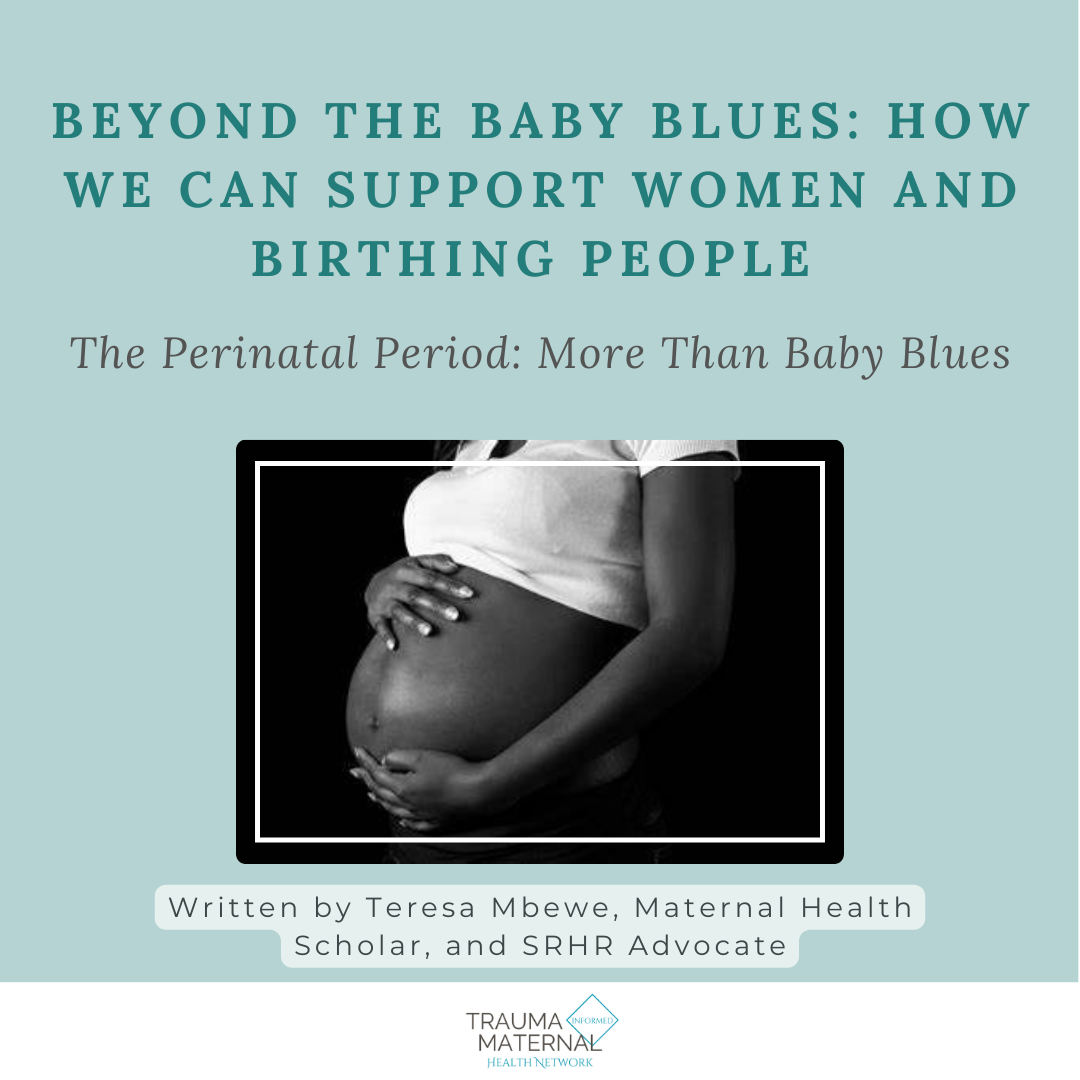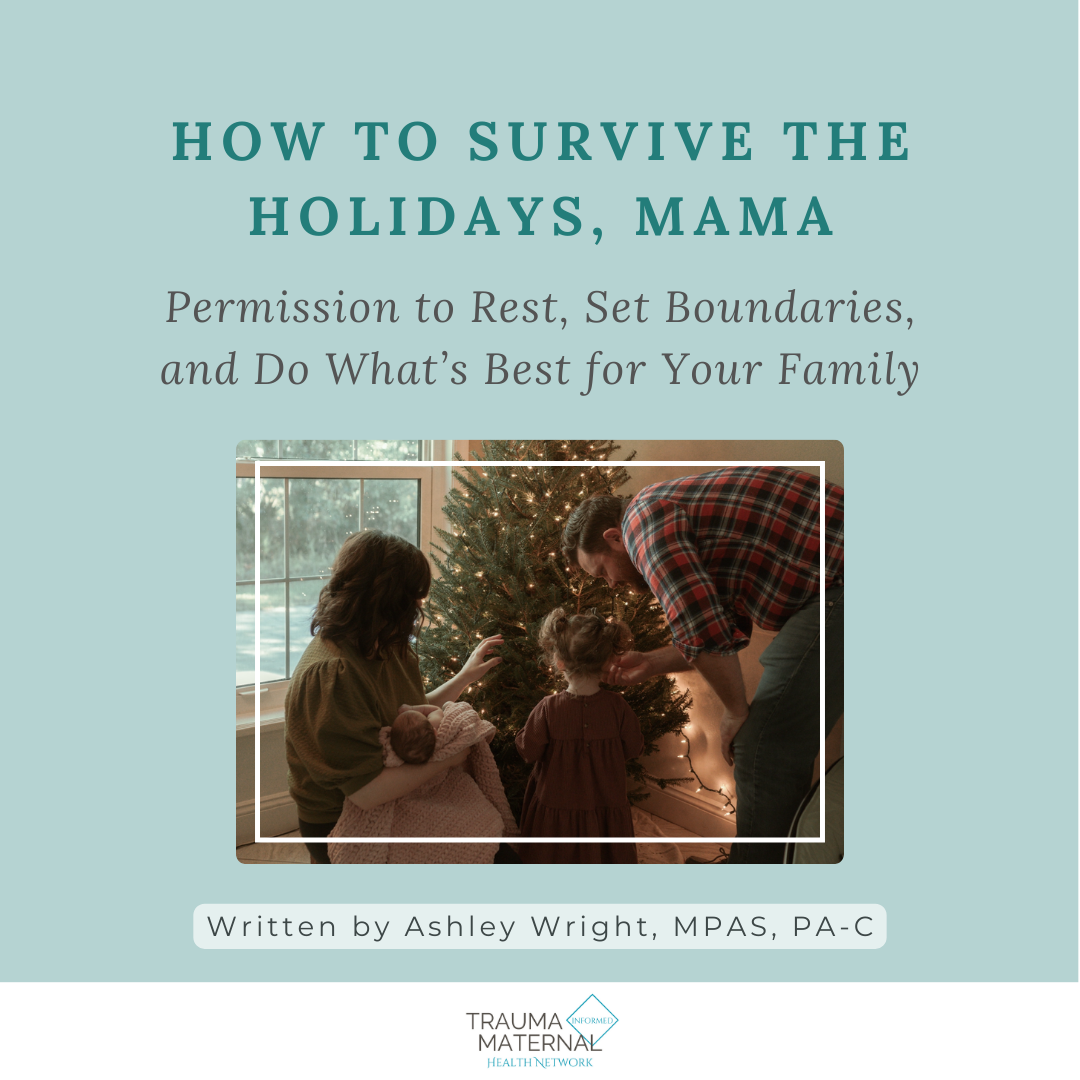How to Support the First Mom in Your Friend Group (So She Doesn’t Have to Choose Between Motherhood & Connection)
Written by Guest Blogger Francesca Emma, LMHC
When you're the first of your friends to have a baby, you're stepping into a whole new world—and often, you're doing it alone.
I remember being the first in my friend group to get married, which came with its own set of challenges. But becoming a mom? That was another kind of transition entirely.
In the beginning, there's excitement.
My hospital room was filled with friends who were eager to visit. There were gifts, text threads buzzing with baby name predictions, and lots of enthusiasm around planning for the baby shower and nursery. I felt loved and supported, and it meant the world.
But once the celebrations slowed down and real life set in, things started to get quiet.
The days got longer, the nights even longer, and suddenly I was in a place my friends couldn't quite meet me in—not because they didn't care, but because they just hadn't been there yet.
Explaining what it feels like to operate on two hours of broken sleep, the emotional rollercoaster of postpartum recovery, and the sheer vulnerability of birth itself— it often felt like speaking another language.
There were moments of guilt, too.
Guilt about missing birthdays,
Canceling plans last-minute, or
Not being "fun" anymore
Even when friends tried to include me, it was hard. Meeting for drinks now meant having to get a sitter and work around nap and pumping schedules. Even though none of it was intentional, it started to feel like I couldn't keep up.
These moments can create deep emotional strain, and for many, this kind of isolation and identity shifts can contribute to anxiety, sadness, and even postpartum depression. It’s a normal and valid response to a major life change, especially when your peer group is in a different place in thier lives.
So what can help?
Support Networks
Support networks are everything. For me, it was leaning into conversations with my sister, sister-in-laws, and the mom-friends I met online. Finding people who get it made all the difference.
This is exactly why collaborative communities like Motherhood Moves exist—to give moms a place to feel understood, supported, and less alone. Whether through virtual meetups, in-person wellness events, or mental health resources, these spaces are a lifeline. Being a part of this community now as a mental health consultant brings me so much pride because I am witnessing what I was missing throughout my own journey.
It offers the chance to connect with your body through movement while also building new relationships with other moms who are in the same phase of life.
Therapy
Therapy can also be a powerful anchor. Talking to someone who understands maternal transitions can help you navigate the emotions with more clarity and compassion. And don’t underestimate the power of communication. Your friends care about you. Letting them know what this season feels like, asking for their patience, and suggesting plans that include the baby can help bridge the gap. It’s okay to advocate for yourself and what you need.
Acknowledging Your Needs
If asking for help feels uncomfortable or brings up guilt, try framing it in a way that acknowledges your needs without apology:
"I'm trying to be better at reaching out—could you come by for 20 minutes so I can shower uninterrupted?" or
"Would you mind bringing a coffee if you're swinging by?"
These small asks can lighten your load more than you think.
1:1 Connections
Also, know that group outings may be hard for a while—but fostering one-on-one friendships might feel more doable. A quiet coffee catch-up during nap time can provide more value than a crowded night out ever could.
The truth is, transitions are hard.
But with time, you'll find your groove. And the friends who truly love you? They'll still be there. They might not understand everything you're going through, but they’ll be waiting to learn alongside you as things shift.
Now that I’m further along in this journey, I can reflect on what truly helped. Some of the most meaningful support came from small, intentional gestures: a friend dropping off a coffee without asking, someone texting "I’m thinking of you, no need to respond," or an invitation that included my baby so I didn’t have to choose between motherhood and connection.
These seemingly small things carried big emotional weight. And when friends listened with open hearts—even if they didn’t get it—I felt seen.
You're not doing it wrong. You're just doing something new. And you're not alone.
- - - - -
Guest Author: Francesca Emma, LMHC
Francesca is a licensed mental health counselor who has been specializing in eating disorders, body image & women’s health over the last 15 years. She has a passion for helping women best navigate their pre and post pregnancy selves using a trauma inclusive lens.
Website: https://www.francescaemmalmhc.com/
Instagram: https://www.instagram.com/francescaemmalmhc/
Directory Listing: https://directory.maternaltraumasupport.com/search/francesca-emma-lmhc-revitalize-180-22.html
About the Trauma-Informed Maternal Health Network
Liz Gray, LCSW and Olivia Verhulst, LMHC, PMH-C are the co-founders of the Trauma-Informed Maternal Health Directory. They are clinical psychotherapists with a deep passion for increasing accessibility of trauma-informed care to the maternal health population. They created this specialized directory to connect women experiencing infertility, pregnancy, postpartum, and new parenthood to trauma-informed health and mental health providers.
Interested in writing a guest blog post?
If you are a trauma-informed provider who works with the perinatal population, submit a blog proposal HERE!
Please make sure the article is original content that aligns with our values of safety, inclusion, transparency, collaboration, empowerment, and support.




